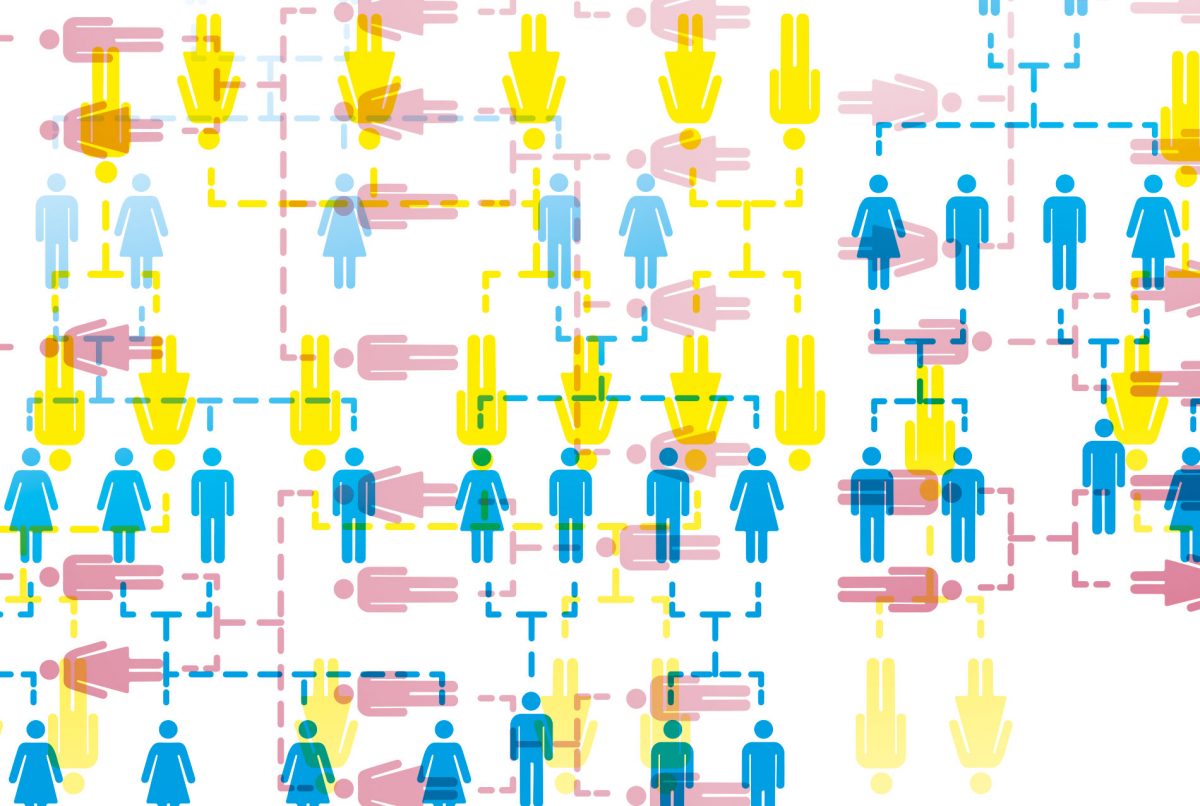If you work in the Netherlands then you are, in principle, subject to Dutch social security legislation. But what if you have some form of professional affiliation with an employer in another country as well? This could mean that a different regulation applies to you. On this page, we will try to help you understand which nation’s social security system you should be a part of, and how it will affect your life in the Netherlands.
Have you seen our page about the Dutch Social Security System? If you are new to this subject, we recommend you take a look.
Changes to the regulations
In recent years, some changes have been made to European Commission social security regulations. This has impacted the coordination of social security schemes in the Netherlands, and could affect you too. As of May 1, 2010, EC Regulation 1408/71 has been replaced by EC Regulation 883/2004.
The Old Regulation
The former regulation still applies to the following people, living in the Netherlands:
- Expats who have been working in Holland since before 2010, and plan to continue with their jobs here until 2020. This group of people will remain subject to the old regulation, providing that:
- Their facts and circumstances as an employee have not changed
- They have not explicitly made a request to work under the new regulation
2. Non-EU nationals. The old regulation will apply to these employees until the EU Member States have agreed to expand the scope of nationalities to which the regulation applies
3. Nationals of Norway, Iceland, Lichtenstein and Switzerland
Under The New Regulation
The New Social Security Regulation applies to the following People:
1. Employees on Assignment in NL
If you are on assignment in the Netherlands, how will your circumstances differ under the new regulation, compared to under the old one? Under Regulation 1408/71 you would have:
- Been eligible for the continuation of the social security scheme of your country of residence, whilst on your assignment in the Netherlands
- Been able to continue with your own national social security scheme for a period of 12 months
- Had the option of prolonging your secondment for a further 12 months
- Only been able to do this if the Netherlands gave their approval beforehand
Under Regulation 883/2004 you:
- Can remain under the social security of your home country for 24 months
- No longer need the approval of the Netherlands in order to prolong your secondment
- Can simply stay under your national security scheme for a full 24 months
Remaining Under your National Security Scheme
There are certain conditions you must meet, if you wish to remain under your national security scheme during your time in the Netherlands. You must:
- Be covered by the social security schemes of an EU ‘member state’
- Continue to work for the company that initially sent you on assignment in the Netherlands
- Ensure that your assignment is not scheduled to exceed 24 months
- Not have been assigned to replace a former employee, who has completed his or her maximum term of assignment
- Not be assigned to a Dutch company that wishes you to work for another company, during your assignment
- Be assigned to an employer, who carries out the majority of their work in their home country
2. Employees in ‘Simultaneous Employment’ in NL
If you are employed in several states simultaneously, by a single employer, what does being subject to the new regulation mean to you?
- If you carry out a ‘substantial’ portion of your activities in your country of residence, then you will be subject to the social security schemes of that country
- 25% or more of your working time, remuneration or turnover is considered to constitute a ‘substantial’ portion your activities
- If you work as both an employee and a self-employed person in several countries simultaneously, you will automatically be subject to the social security scheme of the state in which you are employed
 Side Note
Side Note
Social Security Benefits
- A number of social security benefits have been introduced under the new regulation
- One example is that it is now possible to export unemployment benefits for longer
- Under the new regulation the benefits can be exported for a period of six months
- Under the old regulation, it could be done for only three
Exceptions to the rules
If you do not meet every condition of a security regulation, all is not lost. Exceptions can be made to both the Both EC Regulation 1408/71 and EC Regulation 883/2004:
Let’s say that you know, before it even begins, that your assignment is going to exceed 24 (under the new regulation), or 12 (under the old regulation) months:
- You can request an exemption from the conditions of the regulation
- The two concerned member states will conduct some negotiations with one another, and determine whether or not your request should be granted
- Usually they will grant your request, so long as the anticipated duration of your assignment does not exceed 5 years
- Extending an assignment to over 5 years is only allowed in exceptional circumstances
Which regulation applies to you?
If you are from a ‘Treaty Member State’
A treaty member state is a country that has entered into a social security treaty, with which the Netherlands has also entered into. I.e. both countries are ‘members’ of the same treaty.
- If you are assigned to the Netherlands from a country with which the Netherlands has entered into a social security treaty, the laws by which you must abide have to be in line with those of said treaty
- This is true, so long as you are covered by the scope of the treaty. This usually means that you need to be a national of one of the treaty states. Or, you could have been insured in one of the treaty states before you were assigned abroad
- If your posting is temporary, most treaties will allow the legislation of the country from which you have been posted to continue to apply to you
Treaty Conditions
Treaties tend to have certain conditions, which employees from their member countries must meet:
- Conditions may vary from one treaty to another
- Usually, a treaty will insist that before an employee was assigned abroad, he or she was insured according to the social security legislation of the country from which he or she has been assigned
- A treaty will also usually require employees to continue their employment with the company in the country from which they were initially assigned
What else do you need to know about being from a treaty member state?
- Depending on the treaty that applies to you, your posting will be allowed to continue for anywhere between 12 months and an unlimited period of time
- Sometimes an extension is possible, but this is also dependant on the treaty
- Almost all treaties have measures in place, which prevent two different legislations from applying to an employee
The ‘General Rule’
- Most treaties contain something called a ‘general rule’
- The general rule applies to employees who are on assignment in the Netherlands, but do not wholly comply with the conditions of the treaty,
- The general rule states that such employees will be subject to Dutch social security legislation, if their work is carried out in the Netherlands
If you are from a Non-Treaty Member State
A non-treaty member state is a state with which the Netherlands has not entered into a social security treaty. If you are from such a country, and you are on assignment in the Netherlands:
- It is usually impossible for you to obtain an exemption from Dutch social insurances
- Consequently, you will have to participate in the social security systems of both countries
- This may result in your being liable to pay double contributions
- This should mean, however, that you are entitled to receive double benefits
 Side Note
Side Note
Social Security Certificate
In the Netherlands, you must be able to prove which country you pay your social contributions to. Therefore:
- In order to prove that you are contributing, you will be issued an ‘A1 certificate’
- You will also need a European Health Insurance card, in order to receive medical care in the Netherlands
- This card is issued by the competent authorities abroad
- It enables you to register with a health insurance company in your country of residence
- It is very important to have an EHIC card, in case you find yourself in need of urgent medical care

How Expats in the Netherlands Are D ...
The Netherlands has long been known for its financial savviness, and that mindset tends to ...

Understanding Mortgage Calculators ...
Buying a home in the Netherlands involves careful financial planning, especially for expats navigating the ...

Mortgage Interest Rates in 2025: Wh ...
As 2025 unfolds, expats navigating the Dutch housing market find themselves in a shifting financial ...

Be prepared for the Dutch housing m ...
Buying a house in the Netherlands may work a bit differently to what you are ...

Mortgage Interest Rates in the Neth ...
Mortgage interest rates can have a significant impact on homebuyers and homeowners. The average interest ...

Dutch 30%-ruling Tax Facility
The 30%-ruling is a tax advantage, created for employees who are posted or recruited ...

Obtaining a Mortgage as an Expat in ...
Obtaining a mortgage as an expat in the Netherlands can be a complex process, as ...

Banking made easy with ABN AMRO
When preparing to live in another country, you are instantly faced with the hurdles of ...

Four Legal Differences You Need to ...
Relocating to any country is a big step. Aside from all the cultural differences and ...

Patchwork Family
‘Patchwork families’ are families made up of parents and children, whereby one – or both – of ...
 Useful links
Useful links